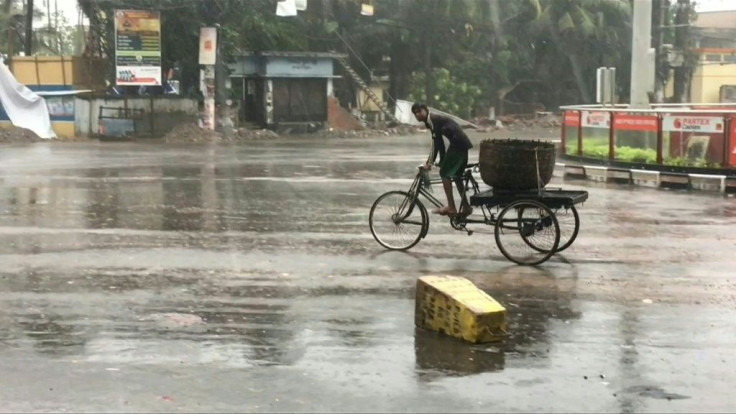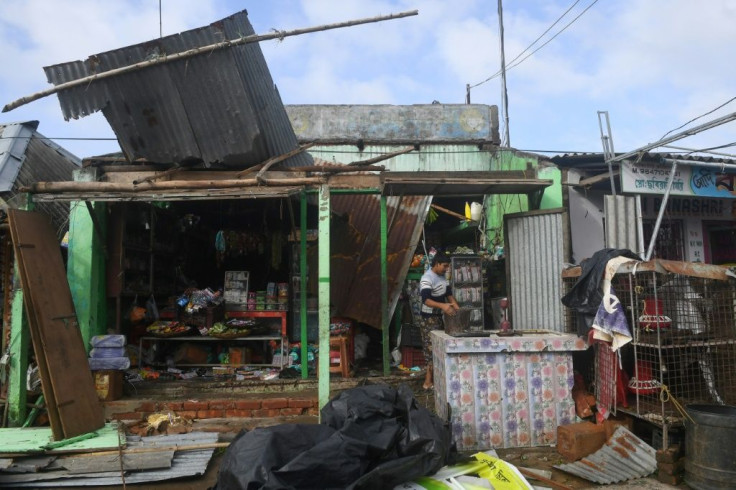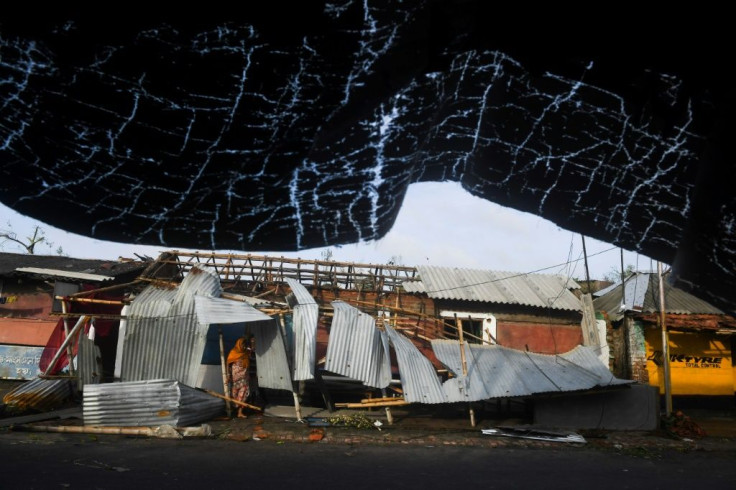Six Dead As Cyclone Bulbul Smashes Into India, Bangladesh Coasts

Six people have died and more than two million others spent a night huddled in storm shelters as Cyclone Bulbul smashed into the coasts of India and Bangladesh with fierce gales and torrential rains, officials said Sunday.
The cyclone packed winds of up to 120 kilometres (75 miles) per hour when it hit late Saturday, closing ports and airports in both countries.
One person was killed in India on Saturday after being struck by an uprooted tree in Kolkata while another died in a wall collapse in nearby Odisha state.
Four more were killed by falling trees in Bangladesh, local disaster management officials told AFP.
In coastal Khulna, the worst-hit district in Bangladesh, trees swayed violently and were ripped from the ground in the fierce storms, blocking roads and hampering access to the area.
Some low-lying parts of the district had flooded, disaster management minister Enamur Rahman told AFP.
Authorities said the cyclone was weakening as it moved inland.

"It has turned into a deep depression, causing heavy rainfalls," Bangladesh weather bureau deputy chief Ayesha Khatun told AFP.
Bulbul hit the coast at the Sundarbans, the world's largest mangrove forest which straddles both Bangladesh and India, and is home to endangered species including the Bengal tiger and the Irrawaddy dolphins.
The mangroves shielded the coast from the storm's full impact, Khatun said.

More than two million people across Bangladesh were relocated to cyclone shelters.
Troops were sent to coastal districts while tens of thousands of volunteers went door-to-door and used loudspeakers to urge people to evacuate their villages.
"We spent the night with another 400 people," said Ambia Begum, who arrived at a shelter in the port town of Mongla late Saturday along with her family.
"I am worried about my cattle and the straw roof of my house. I could not bring them here. Allah knows what is happening there," the 30-year-old mother of three told AFP.
Around 1,500 tourists were stranded on St Martin's island off southeast Bangladesh after boat services were cancelled.
In India, some 60,000 people were evacuated from their homes while flights in and out of Kolkata airport were suspended for 12 hours.
Bangladesh's low-lying coast, home to 30 million people, and India's east are regularly battered by cyclones that leave a trail of destruction.
While the frequency and intensity of the storms have increased, partly due to climate change, the death tolls have come down because of faster evacuations and the building of thousands of coastal shelters.
Cyclone Fani was the most powerful storm to hit the area in years when it struck in May, killing 12 people.
sam-sa/grk/gle
© Copyright AFP 2024. All rights reserved.





















